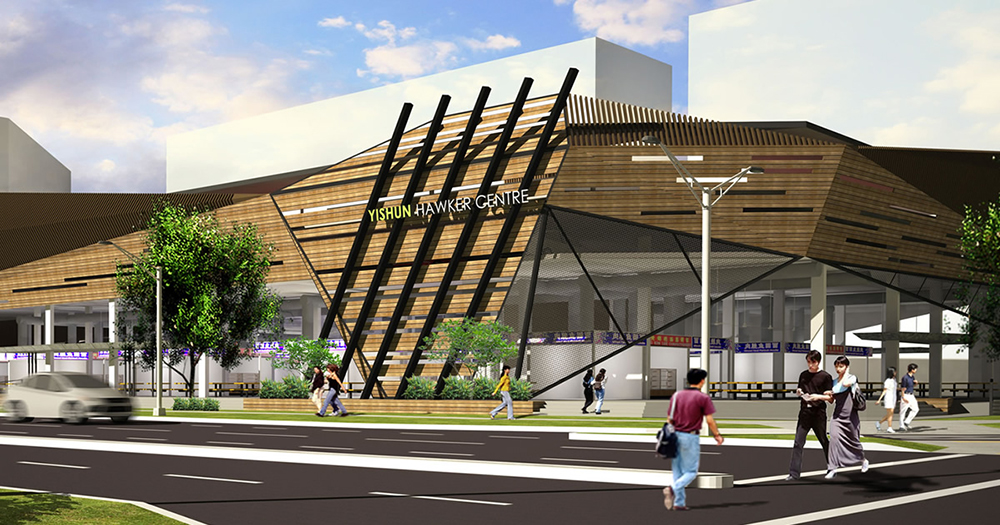With the recent news about social enterprise hawker centre operators charging hawkers "compulsory" miscellaneous fees on top of their normal rental, a Facebook post from Singaporean commentator Andrew Loh revealed that this issue was first brought up in Parliament more than three years ago.
In a sitting on August 18, 2015, then-Nominated Member of Parliament (NMP) Kuik Shiao-yin asked how the National Environment Agency (NEA) will make sure that social enterprise hawker centre operators "do not take advantage of their position to profiteer unfairly".
Social enterprises required to submit audited accounts
In response, then-Minister for the Environment and Water Resources Vivian Balakrishnan said the social enterprise hawker centre operators (he mentioned the examples of NTUC Foodfare Co-operative Ltd and Fei Siong Food Management Pte Ltd) are subjected to audit checks by NEA:
"The social enterprises who are managing our hawker centres on a pilot basis are required to submit audited accounts and detailed management reports to NEA. NEA will ensure that the interests of hawkers, cleaners, hawker assistants and patrons are well taken care of. We believe these will enable us to ensure that hawker centres continue to fulfil their very important social function in Singapore."
In his answer, Vivian also mentioned that social enterprise operators are expected to try to "diversify food options, enhance the dining experience for patrons, and raise the productivity for hawker centres, while keeping food prices affordable".
An "enhanced dining experience" paid by hawkers
In the name of "enhancing the dining experience for patrons", however, it turns out that the operators have been levelling extra services and charging them to the hawkers. These services include a tray return incentive system, which the hawkers have to bear. This means that hawkers pay out of their pockets each time a customer returns their tray.
Elsewhere, customers at Yishun Park Hawker Centre are entitled to a 10 per cent discount whenever they use cashless payments. The cost of offering this discount is borne by the hawkers.
In particular, the Minister said that according to their data, ingredients, and not rental or manpower, are the "key cost driver".
To that end, he said social enterprise operators can help hawkers by buying in bulk. He added that history has shown that NTUC Fairprice has been successful in providing cheap, raw food in the past in response to rising costs:
"Members will recall nearly four decades or more ago, when we were worried about the cost of raw food, the advent of NTUC FairPrice, the social enterprise supplying raw food at very competitive prices — not subsidised, but very competitive prices. It had a salutary effect on the rest of the market. I am trying and hoping that this same approach would work for cooked food as well."
Vivian also shared the government's thinking in how such social enterprises can help to provide bulk-buying discounts to hawkers as a way to save on ingredient costs.
A "balancing act" between hawkers, employees, people of S'pore
Kuik followed up with a supplementary question about the need for price caps on certain dishes in a social enterprise-run hawker centre. Some of the stalls in these hawker centres are required to provide an affordable option for diners — food at a max price of S$2.80, for example.
She noted that hawkers find this concept "quite offensive because it feels like the responsibility for keeping food affordable is passed on to them", instead of the operators or the government.
Vivian responded by saying that while the government and social enterprises can help with rent (abolishing sub-letting and reserve rent by NEA) and ingredients (utilising the bulk-buying power of social enterprises), Singaporeans have to accept that this is a "balancing act between hawkers, employees, people of Singapore, and the need to make it affordable and accessible to everyone".
He ended off that exchange, which was joined by other MPs raising similar issues regarding cost and standards of service, by appealing for Singaporeans to give this system a try.
Similarly, the NEA has called for Singaporeans to "give [this system] time to evolve" as this model of social enterprise-run hawker centre is "still in its early stage".
To read the entire Parliament exchange, head over here.
Top image via Yishun Park Hawker Centre.
If you like what you read, follow us on Facebook, Instagram, Twitter and Telegram to get the latest updates.
